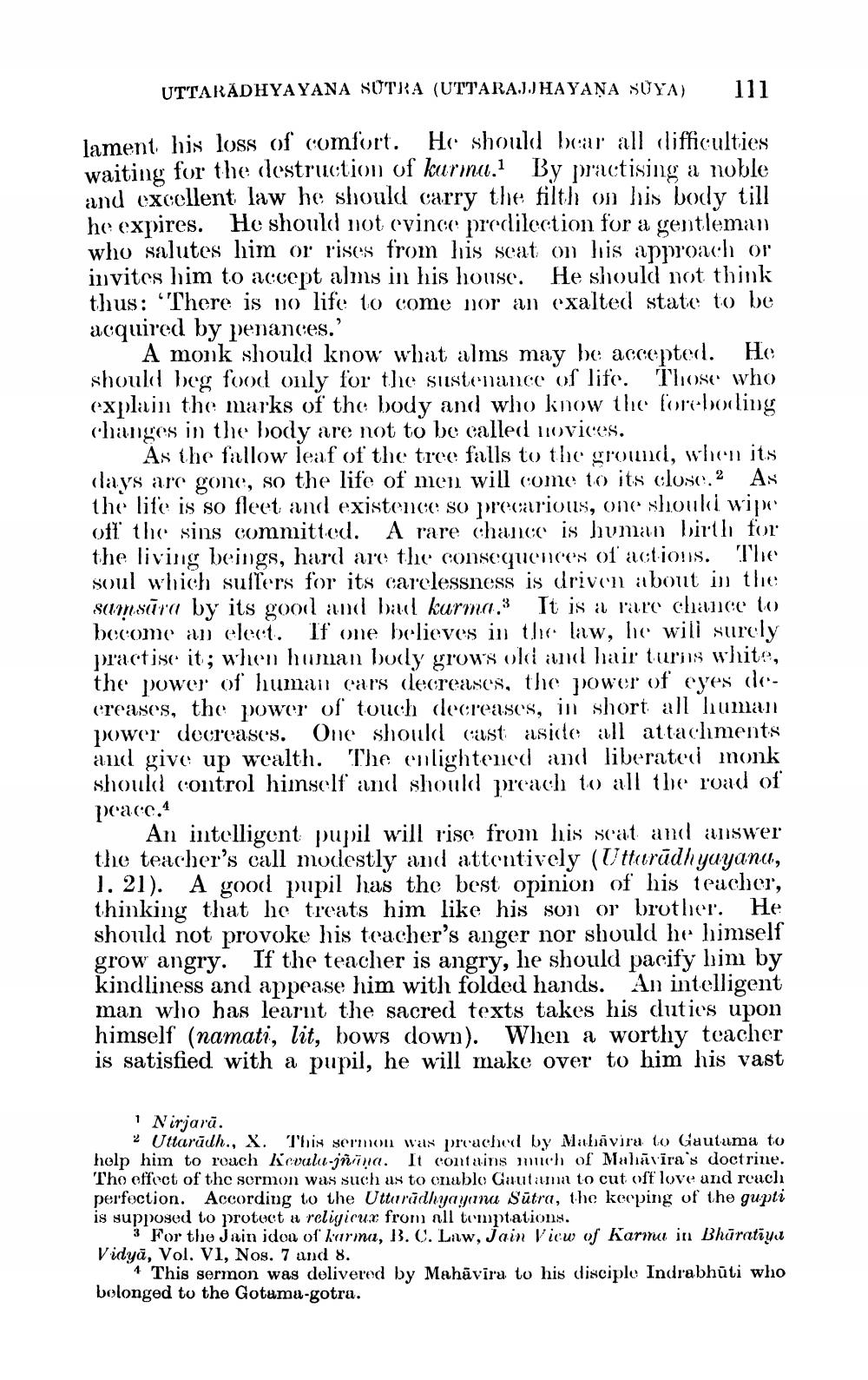________________
UTTARADHYAYANA SUTRA (UTTARAJJHAYANA SÜYA)
111
lament his loss of comfort. He should bear all difficulties waiting for the destruction of karina. By practising a noble and excellent law he should carry the filth on his body till he expires. He should not evince predilection for a gentleman who salutes him or rises from his seat on his approach or invites him to accept alms in his house. He should not think thus: “There is no life to come nor an exalted state to be acquired by penances.'
A monk should know what alms may be accepted. He should beg food only for the sustenance of life. Those who explain the marks of the body and who know the foreboding changes in the body are not to be called novices.
As the fallow leaf of the tree falls to the ground, when its days are gone, so the life of men will come to its close. As
life is so fleet and existence so precarious, one shouki wipe off the sins committed. A rare chance is human birth for the living beings, hard are the consequences of actions. The soul which suffers for its carelessness is driven about in the samsūra by its good and bad karma.3 It is a rare chance to become an elect. If one believes in the law, he will surely practise it; when human body grow's old and hair turns white, the power of human cars decreases, the power of eyes de creases, the power of touch decreases, in short all human power decreases. One should cast aside all attachments and give up wealth. The enlightened and liberated monk should control himself and should preach to all the road of peace.4
An intelligent pupil will rise from his seat and answer the teacher's call modestly and attentively (Uttarūdhyayanu, 1. 21). A good pupil has the best opinion of his teacher, thinking that he treats him like his son or brother. He should not provoke his teacher's anger nor should he himself grow angry. If the teacher is angry, he should pacify him by kindliness and appease him with folded hands. An intelligent man who has learnt the sacred texts takes his duties upon himself (namati, lit, bows down). When a worthy teacher is satisfied with a pupil, he will make over to him his vast
1 Nirjarā.
2 Uttarūdh., X. This sermon was preached by Mahāvira to Gautuma to help him to reach Kovulu-jñina. It contains much of Mahavira's doctrine. The effect of the sermon was such as to enable Gautama to cut off love and reach perfection. According to the Utturădhyayana Sūtra, the keeping of the gupti is supposed to protect it religieux from all temptations.
3 For the Jain idou of karma, B. C. Lilw, Jain View of Karma in Bharatiyu Vidyā, Vol. VI, Nos. 7 and 8.
4 This sermon was delivered by Mahāvīra to his disciple Indrabhūti who belonged to the Gotama-gotra.




